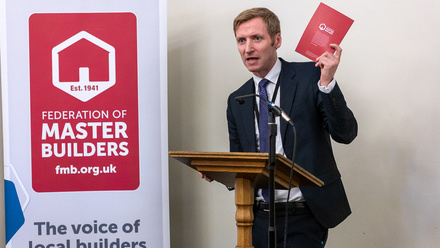Ahead of the Spring Budget on 6 March, the Federation of Master Builders (FMB) is calling on the Chancellor to focus on measures to boost economic growth to allow the UK building industry to deliver the homes this country needs.
Brian Berry, Chief Executive of the FMB, said: “Wednesday’s Spring Budget is the last opportunity for the Government to boost economic growth by supporting the building industry which contributes nearly 9% of Gross Domestic Product. The best way to do this is to tackle the growing housing crisis by reforming the planning system, which is holding back development for small house builders. Support for local authorities to boost their planning teams’ capacity would be a big step forward. A review of the financial burdens the planning system places on smaller house builders is also needed as there are hindering the delivery of the high-quality housing that people in this country need. The Autumn Statement in November took some initial positive steps, but the Government need to go much further.”
Berry continued: “The UK currently has 28 million homes in need of retrofitting. We must ensure that the tax system does not burden homeowners or the builders looking to carry out energy efficiency work. VAT needs to be removed across all areas of housing improvement, if an element contains improvements that will improve energy efficiency. There also needs to be support for the industry-created National Retrofit Hub, including supplying seed funding to help kick start private investment in rolling out long-term retrofitting activity.”
Berry concluded: “The construction skills gap also needs to be plugged as the UK is substantially deficient in the number of construction workers especially those with green skills. The Government needs to ensure that the right workforce is available for future retrofit projects and new greener homes. This means putting in place the funding now, to train the workers we are going to need. A support package should also be made available to help small builders deal with the administrative burden of training apprentices, which is a common factor hindering new talent coming into the industry.”




